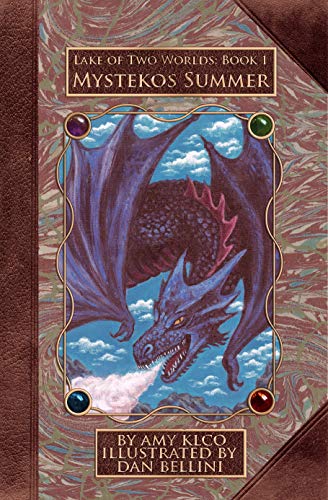 I loved this story! It was a wonderful return to my pre-teen years spent fantasizing my days away between the pages of books. How nice to walk back in time for just a little while and remember those word-immersed worlds. This is a beautiful, heartfelt story that pays homage to the challenges all young girls encounter along the road to becoming women. Even better is the fact the main character, Emily, gets to do it with new friends who share her angst and support her belief in doing what’s right, without sacrificing adventure. Ms. Klco clearly understands young people and their imaginations. I found the conversations natural, the concerns real, the adventure exciting, and the voice genuine. The language she uses doesn’t belittle young people, but rather, lifts them up to a place where they are validated for both their intelligence and their strong emotions, simultaneously. It’s easy to step into this story and feel respected and treasured as another soul walking the path with Emily. The high point for me was that one of Emily’s new friends is a Dragon (no spoilers here, he’s on the cover). As a longstanding, founding member of The SFPCD (Society For the Prevention of Cruelty to Dragons), the traits this honorable creature brings to the story reinforces all I have ever believed about them. Will that be a continuing trend in the next books of this series? I sure hope so! For the record, my TBR pile has just grown by three, to accommodate the rest of this series. Thank you, Ms. Klco.
0 Comments
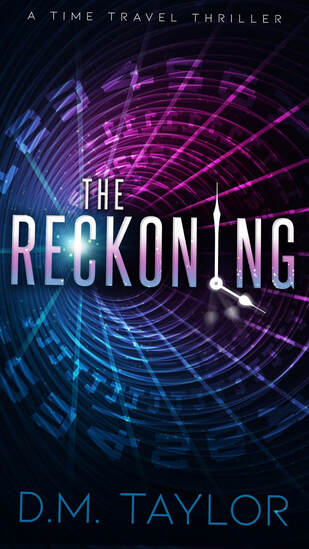 Okay, holy moly. This is a book that may make your head spin in ways you never imagined. And that’s a good thing. Remember the first time you saw the film, Terminator, and how you were trying so desperately to make sense of the time travel thing? This is that, as they say, on steroids. But here’s the thing, not only is this book imaginatively crafted with all the time-travel and science stuff… it’s also expertly written on an emotional level. Every moment of hesitation, every ethical question, every heartbeat of insistence, or pang of regret is transferred directly to the reader. To read this story is not just to imagine it, but to experience it, and believe that it is all possible. We don’t need to know the exact formula for the serum or understand the delicate processes of technology and data collection. This story is told in such a way that it is FELT to be real, we believe it all, easily. Society has often shown us that science fiction often inspires actual science. This story is written in a way that lends a gentle air of concern for its potential in real life. Ms. Taylor has taken a “what if” opportunity and infused it with layers of possibility to pique a reader’s curiosity to the point… almost… of no return. The chapter breaks were in precisely the right places, and the narration was intelligently designed to give us a view of everything, from the inside out. The effect is exquisite. At the end of the book, there are a few pages which tease the beginning of the next book in the series. I must admit, I did not read those pages. Why? Because I knew it would be impossible for me to simply read a small taste without having the entire dessert. This story requires full immersion. To delay gratification is simply a torture I will not force myself to endure. Thank you, D.M. Taylor, for one of the best science fiction thrillers I’ve read in a very long time! 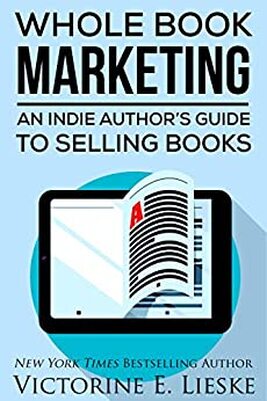 Like many Indie Authors, I am constantly on the look out for craft books to actually improve my writing acumen, and marketing books to improve how I get my books to the market. When I saw this title, written by an award-winning Indie Author, I decided to give it a try. Although most of what I read was a refresher for me, it was still good information. An Indie Author who is new to this process would find the guidance offered here to be very beneficial. The author explains things plainly, with examples along the way. Each chapter has a nice summary of the most impactful points. I don't agree with the author's suggestion that Indie Authors should ignore print sales, and all but abandon in-person events like readings and signings at bookshops and festivals... but if you go in reading the book with the understanding that she is not negating those activities entirely, they just don't work for her... the rest of the pages are easier to get through. (Personally, I love in-person sales opportunities... but that's me.) I most appreciated the insights into advertising on Amazon. This book is unapologetically in favor of selling E-Books over nearly every other medium or platform, and the tips she offers were helpful for me, as this is an area in which I have been lacking in my own marketing efforts. Her suggestions for launch timelines and advertising strategies were interesting, and I thought, worth testing. This was not the “magic key” Indie Authors are hoping for, but certainly, it is a worthwhile read. 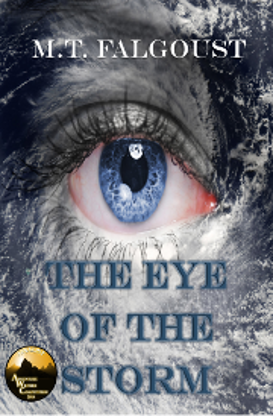 This book is a ride and a half! Like a corkscrew rollercoaster at an amusement park, this book forces you to put your head on a swivel, so you don’t miss anything. I would not have imagined that the worlds of fine art, environmental science, and commercial espionage would work so well together, but Ms. Falgoust is a seasoned chef, blending the tastes and aromas of each as we become gluttons to her tale. The pacing of this book is brilliant. The author uses short chapters that change locations, characters, and POV while still maintaining a tight story arc and delivering impressive dividends for our emotional investment in both the hero and the villain. In the beginning of the book, these short introductions give you exactly the information you need to get to know the cast, but not so much that you’re left with useless information dumps. These small bits of intrigue, romance, action, and snark compliment the story and keep it moving… always moving. This book is wonderfully fast paced, so hold on tight. The conversations that Ms. Falgoust creates between her characters, whether spoken aloud or not, lend great depth to the story. Once we hear their words, we find ourselves agreeing or challenging them in exactly the same way. We find ourselves on a team before we realize that we’re supposed to choose an allegiance. The sprinkles of dialect and exotic language adds credibility to the character’s backstories without leaving the reader thirsting for subtitles. The gentle way the author defines character by utilizing these moments of difference, puts you right in the middle of the action without becoming lost in translation. As the story progresses, the tension builds, and the connections between each group of characters begin to commingle in surprising ways. Like melting three different cheeses to make a delectable fondue, this book gently tosses in subtle details of emotional spice and adventurous expectation that delivers pages of decadence you didn’t know you craved. I hope that this is the beginning of a series because I want more! 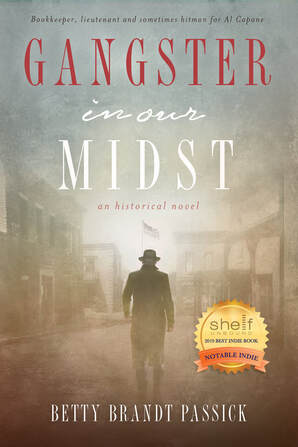 Even though the title of this book implies that it is a story about a gangster… and part of it certainly is… I think that the real story is about the small town to which he comes and goes. Snapshots of life. That’s as close as I can come to accurately describing what it felt like to read this book. The story spans the lifetime of several characters. As each chapter unfolds, we are immediately welcomed into their experiences of small-town life. Just as the people change over time, so does the town. There is a curious maturity that we are privileged to watch unfold. But more than that, we are invited to take a walk down Main Street and be a part of it all. It’s an emotional journey that is completely unexpected… and wonderful. Over the course of the story, we are invited to examine the connections that bind a place to its people, and the people to their home. When I began to read, I thought this would be a book about the inside workings of the titular gangster. Eagerly I read, hoping to get the skinny on him and his outfit. I was hoping to watch his crimes from the inside and watch the how the community endured under his influence. What I got was better. Reading this story, I was able to see inside the gangster himself. I was a witness to his thoughts as a “regular” person who loves his wife, supports his community, and delights in being an “average” person away from his “job”. Ms. Passick skillfully uses individually distinctive dialect styles and vocabulary to help us enjoy a sensation of really getting to know the characters as people, as if we were sitting at the same table, riding in the same car, or standing near the same hunting blind while conversations float in and out of our ears. Reading this book gave me the sensation of watching the town pull out a photo book. I listened to it tell the story of the years it remembered, and the secrets it kept about the interesting, and sometimes unconventional people who lived there. As time marched on, the town reflected the distinct experiences of each soul and how living side-by-side impacted each of them in very different ways. The story was brisk and unpredictable, making it a genuinely enjoyable read.  The process of story creation can be explained as a sphere of creation. It is a process where ideas form and are passed from imagination to hand and back again with relentless attention until the story is complete. Then we pass it along to the reader with the hope we’ve entertained them for a short time. When we begin writing, our story sphere begins like a ball of clay. It’s lumpy and malformed. Sometimes, it doesn’t even look round. Often it starts out egg-shaped or conical more than spherical. Small protrusions may develop with the slight sculpturing movement of just a few fingers. These may round out into something that blends with the rest of the story, or they may fall away entirely. It is realistic to understand that not everything that is created is used well at first glance. If small pieces fall away, we allow them to rest on the floor next to the turntable. But we never abandon them. Instead, we pick them up from time to time, tucking them away in a small box for later use. Perhaps they will fit better into the next story sphere we create. One never knows how small pieces of one sculpture may enhance another. 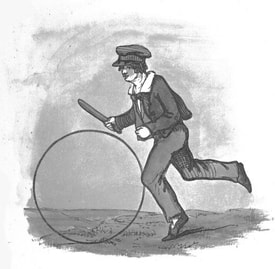 After completely forming our sphere of story, we narrow its profile and scoop out the stagnant middle. This makes it travel more easily from one plot twist to the next. As with a chase wheel, we poke at it, prod at it, and keep nudging it along on its path toward wonderment. We keep the momentum going, else it will crash and fall flat. As everyone knows, it’s quite tricky to get a wheel spinning again once it’s gone flat. However, momentum doesn’t always equate to speed. Sometimes it just means moving the story onward with tenacity. We are careful to pace ourselves so as not to tire too quickly or slag along without interest. We may craft our story slower up hills, faster down hills, and we rest, taking the pace more gently in between. Once we find our rhythm, we relax into the journey, flowing more easily with the uneven patches of the path. We rejoice in the distance we’ve come, and with good reason. It’s not a simple thing, keeping a story sphere moving forward. It requires a strength many don’t realize they have until The End stares back at them from a stack of paper. After measuring out the distance in words, lines, paragraphs, and pages, we celebrate a bit, resting with our achievements under the shade of respite provided by a first draft well written.  When we feel confident in the journey we’ve traveled and the comfortable completion of our story sphere, we hand it off to editors, proofreaders, and beta readers. The courage required to do this is unrivaled by even the greatest of superheroes. These kind-hearted souls, our mentors of modification, hold our story gently, ascribing the proper reverence to an endeavor crafted with equal parts love and imagination. Then, as they would a Magic 8 Ball, they ask questions, timidly at first, turning our story over in their hands… “What if?” The answer returns, “Very doubtful.” They make notes in the margins. Then, with more confidence this time, they ask, “Can this be believed?” The answer returns, “You may rely on it.” A sigh of relief is released into the air. It was a breath you didn’t realize you were holding. More notes, more questions, like riding a teeter-totter of story maturity, this tribe of dedicated story souls examines the work for areas of improvement and excellence with equal consideration. The process lingers as we patiently wait, trusting the sandpaper and polish of literary opinions. Finally, the last question is asked, “Will this end well?” The answer returns, “Don’t count on it.” Scribbles appear in underlined crimson or capitalized cobalt across our pages, requiring us to dig deeper, uncover more, share secrets without giving away too much. We retreat to our desk, taking this valuable insight with us. We concentrate on the refinement, repeating the steps of sculpture, pacing, and momentum until our pages are returned free from questions, scribbles, and requests for more enhancement.  At last, when our story sphere meets the expectations of quality, we enclose it delicately, like a snow globe, with a cover of protection, and send it to rest on the shelves of the world’s readers. Each, in turn, cradles it gently in their hands, turning it this way and that, watching how each flake of detail lands on the scenes inside. Each reader discovers a new perspective of the story, as they enjoy our gift from a fresh angle. Some are captivated with character, some with the sequence of plot. Others find themselves mesmerized by the dance of pacing or the music of dialogue that wraps around the story sphere, binding it together until the very end. When at last, the gentle snowflakes of the story have settled upon the foundation of the last scene, each reader embraces a message distinctive to them. Each reader’s gentle perspective of life, love, and imagination meld with what the writer provides to create art unique to their experience. This is as it should be, for art is preciously different for each admirer. 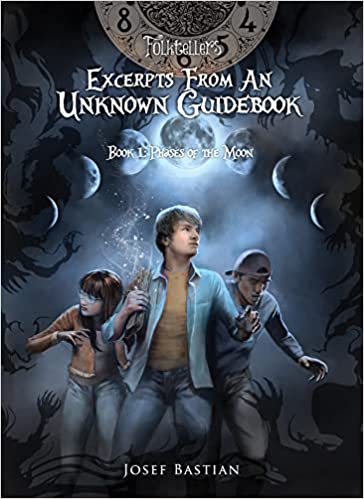 I’m so happy to have read this book! Although it is written with middle-grade and early young adult readers in mind, I truly believe that like the Harry Potter series, adults everywhere will enjoy this book, too. I’m also happy to report that this is the first in a series. I know, that’s unusual, coming from me, but it’s true. This book is about all the things I love in the literary world… books, storytelling, the magic of words, and strong relationships between characters. Somehow, this author has found a way to write an engaging, fictional tale so similar to my Philosophy of Sacred Text, and he’s improved upon my thoughts… even though we came to these ideas quite independently. Writing a story around this concept is something I’ve dreamed of doing for quite some time, and now I don’t have to, because it has already been done extraordinarily well. The story speaks to the wonderment of storytelling, and how it can be a formidable opponent in the war against shadows and doubt. This book is not just a bunch of pages, it is a reading experience that draws you in and engages you in the adventure… which is extremely interesting, because it does the same thing for the characters in the book. Mr. Bastian drops clues and hints along the way, and although I picked up some of them. I am sure there are other clues I missed. I’m not worried, though. Surely, I’ll learn more as the series continues. This is exactly what is supposed to happen when you discover the first book in a series. I am now compelled to buy the next book, and the next… If that’s not enough to get you hooked, the artwork in this book is stunning. It begins with a cover that immediately calls to the reader. Then, with each chapter, more fantastic art is woven in between the pages of beautifully crafted paragraphs… which describe the scenes, people, settings and “other things” with such finesse that I could easily imagine it all. This author has mastered the art of giving the reader enough information to put themselves inside the story, but not so much that there is nothing left to the imagination. Mr. Bastian does an extraordinary job of allowing the reader to add padding to the story while leading us on a magical journey. I’m sending a copy of this book to my eight-year-old niece for her birthday. I’m also sending along a note that encourages her to read it aloud to her younger sister because it was just that good! I am hoping that they both get hooked on the story, as I have, and at some point, we can have lunch and talk all about it! This is a series I will most certainly collect, and probably re-read, too.
What literary pilgrimages have you gone on?
I started out writing in Czech for the Czechoslovak Newsweek biweekly based in New York and for Reporter based in Prague. That was also the only time I wrote in Czech. Later, I wrote for Kaechele Publications based in Allegan, MI. I commuted 70 miles one way to my first professional newspaper job. Once I got stuck in Plainwell overnight after reporting about a dead skunk run over by a police officer-that was the only news the Plainwell City Council had- while a blizzard shut down the freeway. My next stint was with the Ionia Sentinel-Standard. My writings were as varied as the night sky in the fall. I wrote about everything from mean township supervisors, odors from pig farms, barns at the fair, silk mills worker and haunted bridges. On this trek, I ran into a Czech countryman who ended up at the Ionia I-max Correctional Facility and with an invitation to Vaclav Havel's honorary doctorate ceremony at the University of Michigan. I worked for the Lowell Ledger in my hometown of Lowell. Since we couldn't get a story about a corrupt police chief in the print, I fictionalized it and put it in my second book: Shifting Sands: Secrets. My hometown reporting inspired the short stories in the Shifting Sands Short Stories series. Calvin Festival of Faith & Writing in Grand Rapids which was literary a pilgrimage where I attended a lot of sessions how to write about your mother, so I could complete my memoir. That was in April of 2018. I finished the memoir in 2020. It was originally dedicated to my mother, that's why I couldn't finish it. Once I expanded the dedication also to my father writing got easier. What is the first book that made you cry? Most likely a book of fairy tales. Specifically, a story called Golden Fern. What is your writing Kryptonite? My major writing weakness is getting into the writing zone. Whenever I am done with a creative piece, I take a short time off. But getting back into the zone feels like when the shuttle has to overcome the gravitational pull of the Earth with a huge thrust. I can't find enough thrust to get back in. It literally hurts physically and mentally. Do you want each book to stand on its own, or are you trying to build a body of work with connections between each book? In my Shifting Sands Short Stories series, the stories are connected by egoistical characters, sometimes by location. How did publishing your first book change your process of writing? I make great strides to write in the morning and to market in the afternoon. Has the publishing actually changed your writing? My audiences are more defined, but I never write to a specific segment. I keep my writing open with no agenda in mind. As a writer, what would you choose as your mascot/avatar/spirit animal? I like flamingos. What did you edit out of your books? (keep it family-friendly, please) Nasty language, adverbs, some negative feelings. What one thing would you give up to become a better writer? Like I do in Lent, not give up but add. I would add more discipline. What is your favorite childhood book? It's that book of Czech fairy tales that I referenced earlier. What is the most difficult part of your writing process? Definitely getting started. What is the easiest part of your writing process? The finale, but not always. A common misconception entwined with authors is that they are socially inept, how true is that? Not for me. I am very social and I connect with people easily. When did it dawn on you that you wanted to be an author? When I won a short story contest in 8th grade. Who are your biggest literary influences? Gabriel Garcia Marquez, Paulo Coelho, Charles Baudelaire, Stanley Kunitz, Ernest Hemingway, Tennessee Williams. What's your favorite movie which was based on a book? Why? The Godfather. Because it's perfect. Author Mario Puzo also wrote the screenplay. How did it feel when your first book got published? How did you celebrate? It was an incredible feeling of accomplishment. I celebrated with my husband, Ludek and later with friends and family at my first ever book signing inside the Fallasburg one-room schoolhouse. That feeling repeats itself with each new book. It just doesn't get old. What is that one thing you think readers generally don't know about authors? That we are very independent creatures and like to take matters into our own hands, but dependent on the readers. When it comes to research for your books, are you a hunter or a gatherer? Talk about your research process. I hunt for specific information because you could research yourself to death and not get anything done. Once I find what I am looking for our, I incorporate it into my writing and move on. Could you be housemates with your characters? Why or why not? With most of them yes. However, some like Vadim in the Death Song and Ned in Iron Horse bother me, even math professor Martin in The Temptation of Martin Duggan. What's your typical writing routine or schedule? When I am in the writing zone I write around 1,700 words a day or until I am done and can't write anymore. Writing can be an emotionally draining and stressful pursuit. How do you recharge? Definitely in nature on the banks of a body of water. I just stare into the water. It's very powerful. Do you prefer music or silence when you write? Do you have a writing playlist? What's on it? Deafening silence. Which celebrity would you choose to narrate your audiobook? Antonio Banderas. What well-known author, living or dead, do you wish could be your mentor? Why? Dan Brown. I like his cliffhanger style. I try to emulate that. What is your favorite of the six senses (touch, taste, smell, sound, sight, intuition) to write about, why? Intuition. That's what good writing is all about. You never know what's going to happen next. What is a favorite location you've written about? Have you visited that place? How did you choose which details to include? My favorite location is fictive Riddleyville based on a real hometown. I have visited it many many times. I used the flour mills, the silos, the dam, the boat, the hair salon and the store. Travel back in time (without negative effects for you or the timeline) what year do you visit? Why? I would love to visit the roaring 1920s because of all the inventions and the dance era and the flapper dresses. It would be kind of like visiting with my beloved historical fiction Silk Nora set in the Silk City Capital of the world- Belding, MI. What is something about your hero or villain that drove their character, but you didn't specifically tell your reader? In Death Song major character Vadim is driven by his ambitions and jealousy for his own wife. Have you ever resuscitated a project you'd shelved? What helped it work better the second time around? Well, it was Greenwich Meridian Memoir that I literally shelved while I worked on my two books of short stories. I needed to get the memoir out of my system. When I picked up the second half, I was ready to finish it with a new look at the characters- which would be our family members. I re-examined them. What do the words "literary success" mean to you? How do you picture it? I picture literary success in several different terms and on several different levels. It's the feeling of accomplishment and hearing that people actually like your books and why. It's also the repeat readers and the synergy among the authors. It would be nice if I could make enough money to cover for a regular paycheck. Often, I think it was meant to be and destiny for me to become an author. Can you tell us about your current projects? It's a screenplay based on Greenwich Meridian Memoir and a new book in the Short Stories collections. Any advice you would like to give to aspiring authors? Write every day. Try different genres. Go to writers' conferences when everything opens up. Do not stagnate. Let your writing be fluid and always fresh. Please provide links and/or instructions about how readers can purchase signed copies of your books. All of my books are on Amazon. For any who take the time to get to know us, they will find that Community Service work is extremely important to Drake (my muse) and me. My middle grade book, “The Griffin of Greed”, is based on this one idea that doing acts of community service, regularly, far outweighs the collection of material “stuff” or wealth. Wealth is simply a tool to help others, and stuff, well, it just means you’ve got more to dust. I’m not advocating taking a vow of poverty, or retooling to a minimalistic lifestyle. What I am advocating is the concept of emotional “tithing” in one way or another, as you walk through your daily life.
I admit freely that I’m not a wizard at volunteering. I know I could do much more. I’m a highly sensitive and empathetic person, and because of that, sometimes, volunteering in person can be emotionally and physically draining for me. My heart breaks easily, and it takes me longer than most to recover. I’ve donated time to animal shelters, children’s groups, senior centers, and even to cancer patients receiving chemotherapy. Afterward, I found it difficult to re-center myself and give to those who depended on me. So, I had to find another way to serve my community yet protect myself from the pull on my personal resources, which threatened my energy reserves that are devoted to my family and close friends. This is when I came up with the idea to serve from a distance. To use what I do well, and what I know others do well, to make a difference without depleting my emotional and energetic resources. Enter the community service anthology. Collections of poems, stories, and essays donated by writers from everywhere imaginable, focused on serving others. Yes, BOOKS. This is one of the main focuses that drives the work of my company, Pages Promotions. We believe a more harmonious and supportive society begins with literacy. We believe that a successful life begins with, and is enhanced by, the written word. We believe that not everyone is able or inclined to pick up trash by the side of the road or give blood or donate financially in order to contribute to the well-being of their community. We know there must be a positive alternative. We believe one alternative is the Power of The Pen! To support the needs of various charities, and to give writers a place to share their talent and creativity, we have created a Community Service Anthology Project Program. Two or three times per year, we offer enticing prompts that, when multiple authors contribute, results in a stunning book, created from our combined creative energies. Writers of every age, stage, and (nearly) every genre are welcome to submit! We offer novice and experienced writers alike, the opportunity to join together to create a force to be reckoned with... shared experience through the written word. Student contributors are offered community service certificates to help them achieve their graduation requirements while investigating the potential of their imagination. One of the things that gives the pursuit of writing meaning is the impact our words have on the lives of others. What we write, whether real or imagined, can, and often does, spark tremendous connectivity with readers. Words give others permission to feel, learn, and understand points of view or concepts that perhaps they would not have encountered, had they not picked up a book. Works of charity, we believe, are essential to the empathetic, evolutionary path humanity must travel if it is going to sustain and prevail throughout the next seven generations, and beyond. Without the goal of improving literacy standards the world over, our society is doomed to fail. An illiterate population hinders every aspect of a country's development... it's economy, agriculture, industry and manufacturing, arts, sciences, technology, and most importantly, governing. A society that lacks basic literacy skills is threatened by terrorists, despots, and, most tragically, apathy. To meet this goal, we have two projects currently open for submissions. The first is a “By The Seat Of Our Pants” novel titled, “Chaos”. This is a collaborative writing project that allows authors to work together to complete one full novel. Imagine a gaggle of authors, selected in random order, each writing a single chapter of a continuing story. No one knows all the characters involved, how the story will tangle, or how it will end. We are currently in the middle of writing the first edition of this series, “Madness”, and we’re having a lot of fun with it! The proceeds from sales of this book will benefit The World Literacy Foundation and their mission to grow individuals and communities through the written word. For writers who are interested in joining the project, they can visit our website to sign up to participate. The sign up deadline is January 30, 2022, and we’ll hold an organizational meeting via Zoom on February 4, 2022 to discuss the project in detail, take questions, and select the writing order. The second of our community service projects currently open for submissions is a book called “Rainy Day Love”. This is a collection of short stories, poems, and anecdotal essays written inside the theme of “Love”, and based on the following prompt: "A gift is received from an anonymous someone. The note enclosed reads, ‘For A Rainy Day.’" Proceeds from sales of this book will support The Hailey Sue Foundation. This fabulous organization works to uplift the community with the vision of a young woman who believed in kindness above all else. They offer special events, volunteer programs, scholarship programs, and community outreach with service as their passion, following the legacy of a young woman who loved without limits. The submission deadline for this project is February 28, 2022. All the details are available for interested writers on our website. We have also published two other books, “Simple Things”, a collection of poems and essays of isolated gratitude, written in the time of COVID; and “Monster Hunter Intern”, a collection of flash fiction short stories. Both of these books are available on Amazon, and the proceeds serve The World Literacy Foundation. We also have a third collection of flash fiction titled, “The Portrait of Herbert Losh” which is in production for an expected release date of February 15, 2022. Proceeds from this book will also serve The World Literacy Foundation. If, like Drake and me, you believe that community service and literacy are equally important in their power to move life forward, then I hope you will consider taking a few minutes to become involved in one of these projects. The words you share could have tremendous impact on another’s soul… and your own. 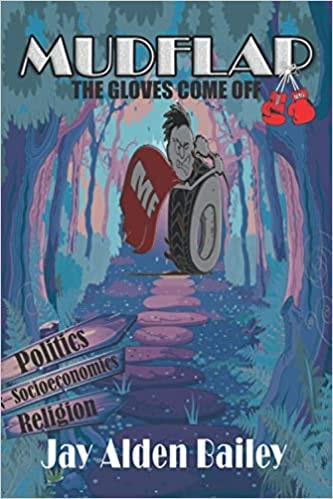 This was difficult for me. It is extremely rare that I don't finish a book once I begin reading. I think it's happened perhaps a dozen times in my lifetime. I've always been an equal opportunity reader. Whether fiction or non-fiction, I read carefully and take my time. I try to give each author a fair shake, each book on its own merits… genre, theme, topic, story, character, setting, purpose… you get the picture. My encounter with this book is one of those rare exceptions. I couldn't finish it. From a craft perspective, the author uses a fictional persona, "Mudflap," to help illustrate his story in third person narrative. Unfortunately, this device is inconsistent. The author frequently switches between personal pronouns (I, me) and back to third person (he, Mudflap), sometimes in alternating paragraphs in the same section or chapter. This inconsistency of narration was very frustrating to read. In addition, I found several grammar, spelling, and formatting mistakes (at least in my ebook version). Also, the "real-time post scripts" at the end of the sections or chapters are enigmatic. Their purpose and function was unclear, aside from acting perhaps as an extension of the author's frustration. This book would have benefited tremendously from professional editing. The synopsis on the back of the book promises "…a philosophical and satirical humor… with solutions for our rapidly changing world." Unfortunately, I found none of these in the 172 pages I read (about half the book). The marketing for this book indicates it to be anti-bullying, but that's not what I read. Instead, I found a victim who decided that the only way to fight back against the bullies he encountered was to write an angry "tell-all" book. By my read, the author's goal was not to relate experiences so readers could learn and grow. But instead, to shame and blame with retaliation, all while hiding his true intent behind fictitious character names (I'm guessing to avoid a lawsuit or several). One particular passage that stood out for me relates Mudflap's [the author's] frustration with Mudflap's business clients refusing to buy his book. He called it a "lack of support". He further explains that he "fired" them as clients because they didn't buy his book. In the following passage, he writes about taking great pleasure in this action, actually laughing about it with his crew of helpers afterward. In my opinion, this behavior manifested as bullying his clients into buying the book, and then "getting back at them" when they didn't. This seems to be an inverse of the purpose of the book. It was confusing. In another passage, he writes about not receiving the treatment he wanted from a town librarian based on his status as a local author. He felt slighted and even angry when the librarian afforded more attention to a more experienced and "not local" author. Later, he engages in a conversation with the other author, belittling his work. In my view, this was bullying the author for his success. Yet, again, this incident seemed counter-productive to what I thought was the book's focus. Perhaps I misinterpreted the book. Perhaps I don't understand the author's brand of humor. Perhaps all the positive stuff was in the first book, and I made a mistake by reading them out of sequence. Perhaps all is redeemed at the end of the book, and I'll never know because I never got to the last page. Perhaps I'm overly sensitive. But perhaps not. My opinion of this book is that it is a memoir of the author's life, his frustrations with his community, and his neighbors. He writes about the many bullies Mudflap [the author] encounters with a degree of acrimony I could not continue to read. It was too painful. I found only two instances of positivity in this book, and because of that, I had to stop reading. It is possible that I'm not giving the work a fair shake by not finishing it. I can allow for that possibility. Perhaps I should have forced myself to suffer through to the last page. Perhaps not. I believe that reading should be something we enjoy, something we can learn from, something that enriches us emotionally and intellectually. Unfortunately, this book served me in none of these ways, so I put it aside. This book may have an audience, but I am not it. And that's okay. Not every book is for every reader. All that having been said, I think it is important to take note that this author's writing is courageous. He emptied a good part of himself onto the page, and for that, he should be commended. All writing should be viewed as Sacred Text. Although this book was not in alignment with my personal reflection of life, that does not retract the Sacred value I place on the words and his effort in recording them. For clarification, please read my Philosophy on Sacred Text HERE. |
WelcomeYou'll find some interesting stuff here... some Op Eds, some Information, Book Reviews, and More. Poke around the categories and see what ruffles your feathers... in a good way! Archives
July 2024
Categories
All
|

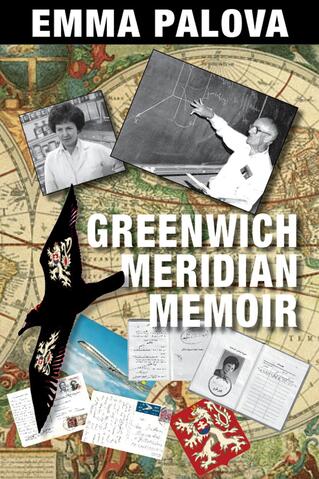
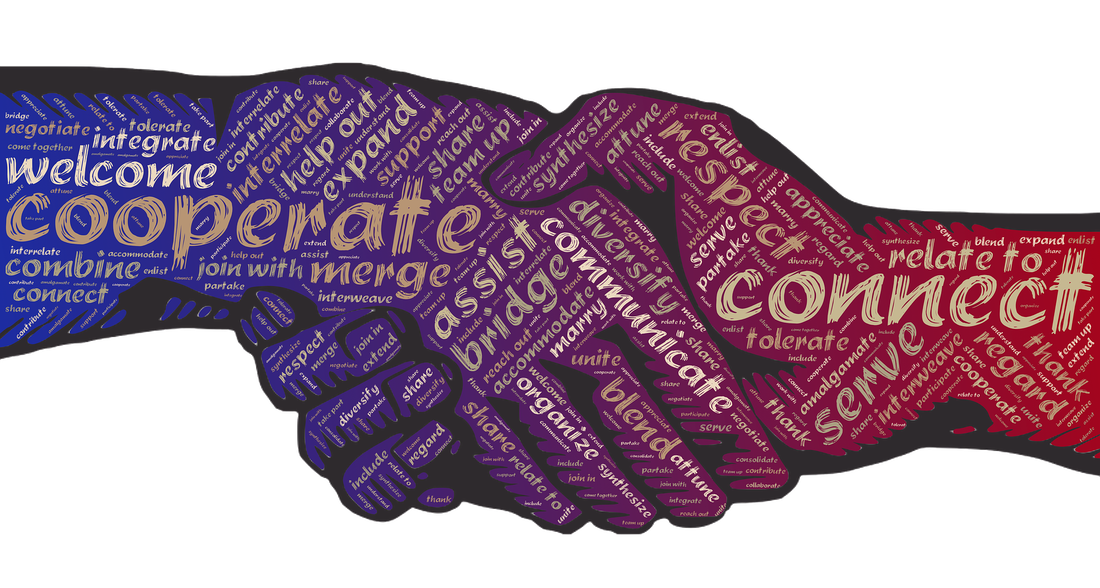
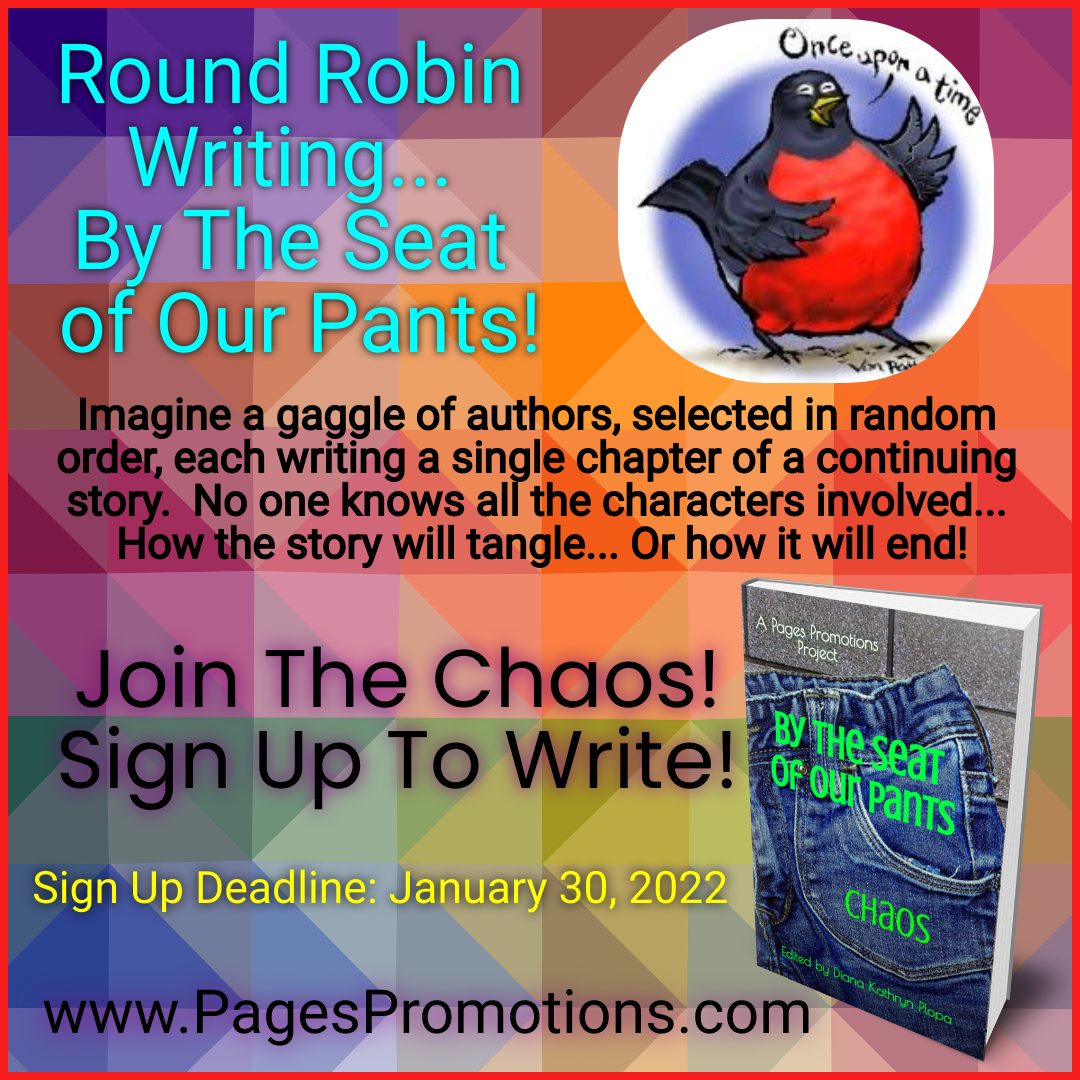
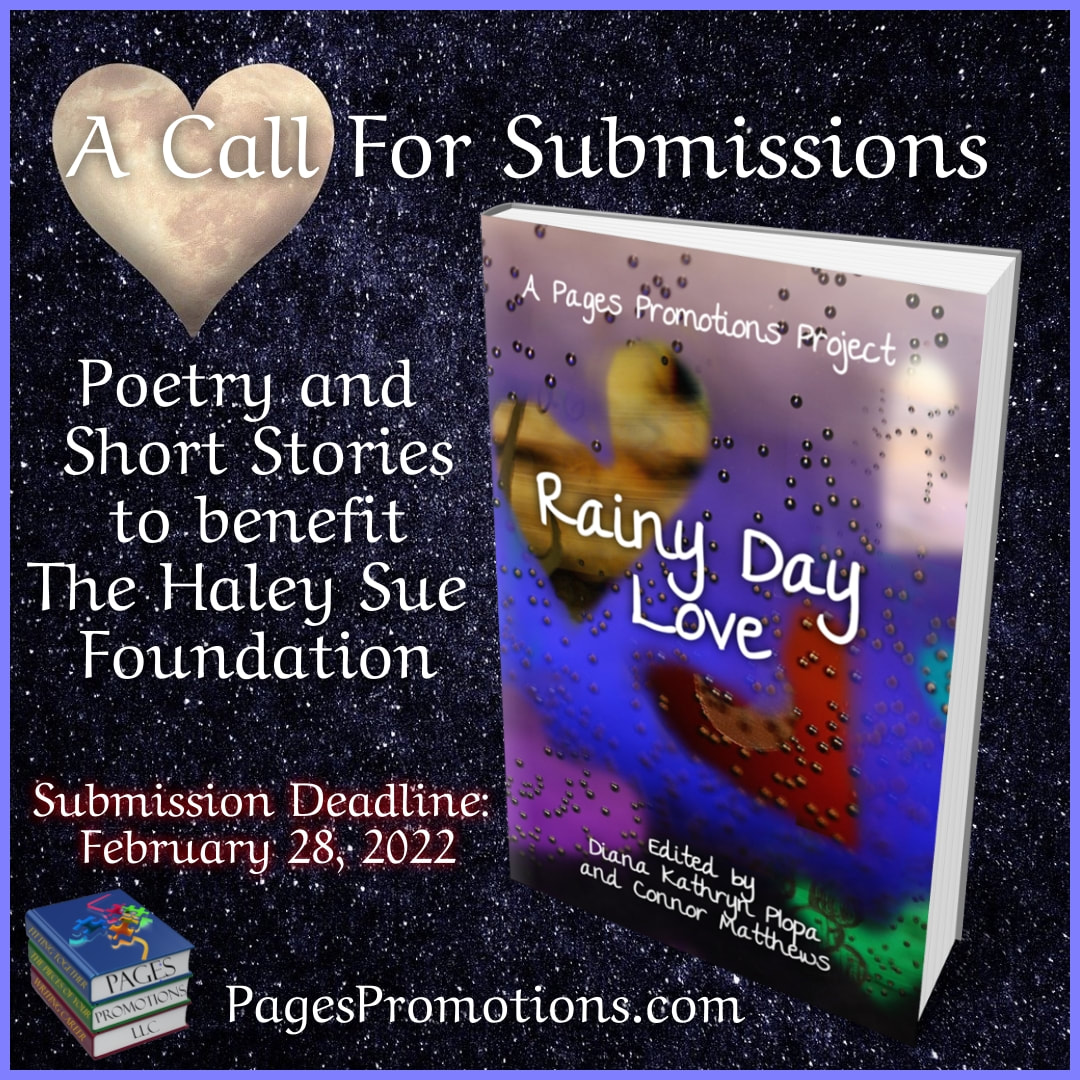
 RSS Feed
RSS Feed